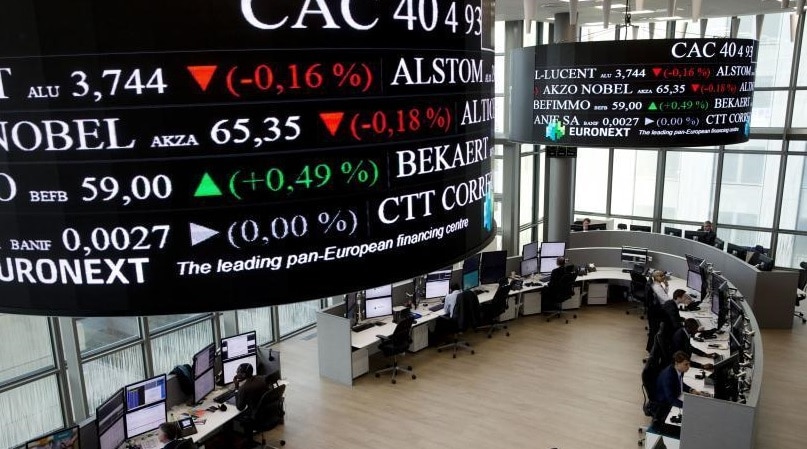
European markets closed lower on Monday after a shock contraction in Chinese exports heightened fears of a slowdown in global growth.
The pan-European Stoxx 600 was down 0.6 percent at the end of the session, with all major bourses in negative territory. Almost all sectors were also trading in the red.
Europe’s technology stocks were the worst performers, down more than 1.5 percent. It comes after official data from China on Monday showed imports fell 7.6 percent year-on-year in December, while analysts had anticipated a 5 percent rise.
Additionally, China’s exports unexpectedly dropped 4.4 percent, defying projections of a 3 percent gain. The news appeared to reinforce worries that U.S. tariffs on Chinese goods were starting to take a heavy toll on the world’s second-largest economy.
Oil prices edged lower on Monday on the back of the data from China, with concerns being raised that fuel demand would be hurt by a global economic slowdown. U.S. markets also saw a slump, with all major indexes falling during morning trade.
Looking at individual stocks, Denmark’s Pandora slumped toward the bottom of the European benchmark, after Morgan Stanley slashed its price target for the company. The Copenhagen-listed stock slipped 6 percent.
Elsewhere, Britain’s Burberry was trading in positive territory after Bank of America Merrill Lynch raised its stock recommendation to “neutral” from “underperform.” Shares of the luxury stock rose on the back of the news.
Back in Europe, Brexit remains in the spotlight.
British lawmakers are poised to vote on Prime Minister Theresa May’s much-maligned Brexit deal on Tuesday, with less than 75 days to go before the country leaves the European Union.
Remarkably, May’s template to exit the bloc faces virtually certain defeat.
That leaves the prospect of a complete collapse of government, a disorderly exit from the bloc or even the entire Brexit process being scrapped altogether over the coming weeks.
Sterling briefly jumped to a two-month high on Monday as U.K. broadcaster ITV reported a group of Conservative lawmakers would support May’s deal in parliament.
This however was swiftly rejected by an influential lawmaker within the group, prompting a reversal in the pound’s sudden move.
